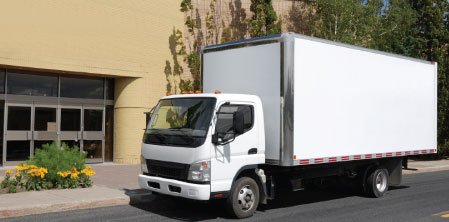What Must I Prove to Win My Truck Accident Case
Of all of the motor vehicle accident types that affect drivers in the state of Alabama, truck accidents are some of the most tragic. When a truck accident occurs that involves a smaller passenger car, the smaller vehicle almost always sustains the lion’s share of the damage, and those within the smaller vehicle almost never walk away without moderate to severe injuries.
If you have suffered serious harm in a truck accident–or if you have a lost a loved one to a truck accident–you can file a civil action to seek compensation for damages. However, in order to win your suit, there are four elements that you must prove. Consider the following overview about liability and what you need to prove to win your truck accident case.
Identifying the At-fault Party
Before you can even file your truck accident case, you’ll need to identify the at-fault party. In a truck accident claim, this can be especially complex as there are typically multiple parties who could be to blame. For example, fault may fall on the shoulders of the truck driver, the trucking company, a vehicle manufacturer, or another third party.
Elements You Need to Prove to Win Your Truck Accident Claim
Once you have identified who is to blame for your accident, you’ll need to collect evidence to prove the four elements listed below. Note that it’s very possible that you are naming multiple defendants in your claim; if so, you will need to prove the first three elements listed for each individual party.
- Duty of care. The first element that you must establish in a truck accident claim is that the party (or parties) against whom you’re filing the claim owed you a duty of care. Usually, this duty is implied. For example, all drivers owe others on the road a duty of care to operate their vehicles safely and within the confines of the law; truck drivers have a heightened duty as commercial carriers.
- Breach of duty of care. The second element is much more difficult to prove than the first – breach of duty of care. A breach of duty of care means that the party against whom you’re filing your claimed violated the degree of care that they owed to you. This is also referred to as negligence, or the failure to act with the same degree of care that another party in a similar situation would. In a truck accident claim, the “breach” could be anything from operating a truck while intoxicated or distracted to hiring a driver with a poor driving record to failing to perform proper truck maintenance and more.
- Causation. The third element of an injury claim is causation – that the defendant’s negligence/breach of duty of care was the proximate cause of your accident and injuries. Another way to think about this is that you have a duty to prove that your injuries would not have occurred but for the defendant’s actions.
- Damages. Finally, you must prove that you have suffered actual damages, economic or noneconomic or both, as a result of the accident and injury. Examples of common damages in a truck accident claim are property damage expenses, pain and suffering, medical expenses, and lost wages.
What is the Burden of Proof in a Personal Injury Claim?
It’s important to know what the burden of proof is in a personal injury claim, or the degree to which you have to prove the four elements listed above. Unlike a criminal case, which adheres to the “beyond a reasonable doubt” standard, you only have to prove the above elements by a “preponderance of the evidence.” This is an easier, lower standard than is “beyond a reasonable doubt,” and essentially means that you must prove that it is more likely than not that what you’re alleging is the case or that what you’re saying has a greater than 50 percent chance of being true.
How Our Alabama Personal Injury Lawyers Can Help
You are likely facing serious losses and economic hardship if you have been in a truck accident or have lost a family member in this type of accident. At the law offices of Burns, Cunningham & Mackey, P.C., our lawyers can guide you through what you need to prove in a personal injury claim and how to prove each element successfully. We work on a contingency fee basis and have the experience and reputation you can count on.
To schedule your free consultation, please reach out to our law firm by calling us directly at 800-574-4332, visiting our office in person, or sending us a confidential message today.







Leave a Reply
Want to join the discussion?Feel free to contribute!